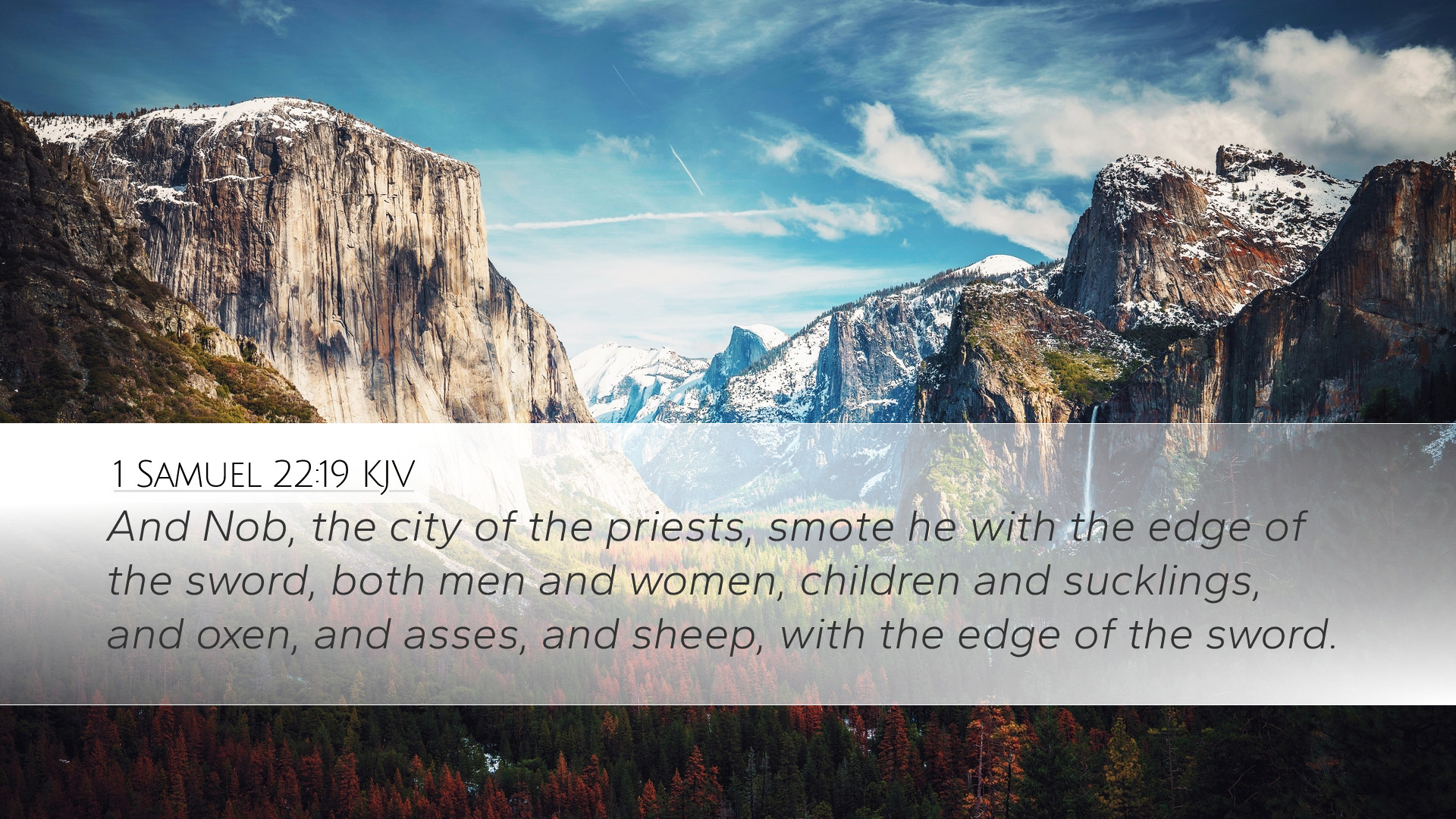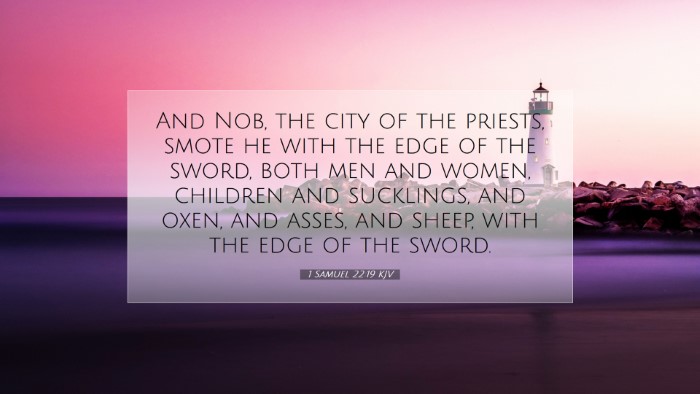Commentary on 1 Samuel 22:19
Verse: “And Nob, the city of the priests, smote he with the edge of the sword, both men and women, children and sucklings, and oxen, and asses, and sheep, with the edge of the sword.”
Introduction
This verse records a tragic event during the reign of King Saul, emphasizing the severe consequences of his jealousy and paranoia towards David. This commentary merges insights from various public domain sources to provide a holistic understanding of the text’s implications.
Contextual Background
The historical context leading up to 1 Samuel 22 involves Saul’s deteriorating mental state and his intense pursuit of David, who had been anointed as the next king. Saul's fear and hate towards David led him to irrational and violent decisions. In this instance, the city of Nob, which housed the priests, became a target for Saul's wrath.
Commentary Insights
Matthew Henry’s Commentary
Matthew Henry emphasizes the depth of Saul’s cruelty as he ordered the massacre of the priests at Nob. Henry notes that the priests were innocent, serving God and aiding David, yet they were caught in Saul's vendetta. This act reveals the lengths to which Saul would go to eliminate any threat to his throne, showing how fear can corrupt leadership.
Albert Barnes’ Notes
Barnes draws attention to the grim nature of this scene, describing the total annihilation of a community dedicated to God. He highlights the sin of Saul, indicating that such actions are indicative of a man whose heart is far from God. Barnes points out that this event serves as a grim reminder of divine judgment against those who pursue evil motives and shed innocent blood.
Adam Clarke’s Commentary
Clarke provides further detail regarding the specificity of the deaths - men, women, children, and livestock. He stresses that this indiscriminate slaughter underscores the sheer depravity of Saul's actions. Clarke reflects on the notion of divine justice, suggesting that this event serves as a sobering warning against the consequences of sin and the necessity of relying on God's protection and guidance.
Theological Implications
This passage highlights several theological themes relevant to pastors and scholars:
- The Nature of Sin: The extent of Saul's corruption shows the devastating impact sin can have, not only on individuals but also on communities.
- Innocence and Suffering: This narrative illustrates the harsh reality that the innocent often suffer due to the sins of others, a theme prevalent throughout scripture.
- Divine Justice: The text calls for a reflection on the nature of God's justice. While Saul’s actions appeared to go unchecked for a time, ultimately, he faced the consequences of his evil deeds.
- God’s Sovereignty: Despite the tragedy, God's overarching plan for David's kingship remains intact, reminding believers that God is still in control even amidst human wickedness.
Lessons for Reflection
As pastors, students, and theologians study this passage, several lessons emerge:
- Leadership Accountability: Leaders must be wary of their motivations and actions, for they can impact the lives of many, often in dire ways.
- Compassion and Justice: The call to serve others in compassion while maintaining a commitment to justice is vital in the life of a believer.
- Faith in Trials: David's experience reminds us that even in perilous circumstances, faith in God’s providence is paramount.
Conclusion
1 Samuel 22:19 is a profound reminder of the tragic results of jealousy, fear, and sin. It serves as an admonition to leaders and believers to cultivate hearts aligned with God’s will, seek justice, and show compassion while also trusting in God's ultimate plan and protection.


